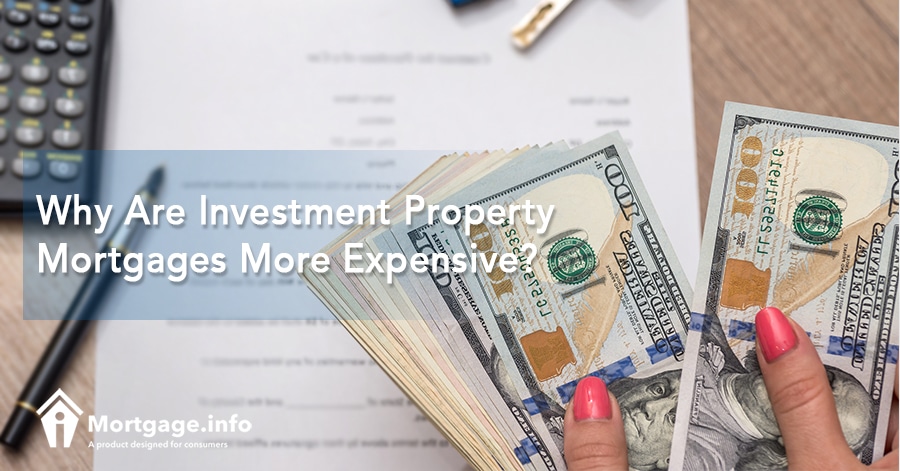
If you are in the market to buy an investment home or second home, you should know that your mortgage terms will be different. By different, we mean more costly. There’s one main reason lenders charge you more – it comes down to the risk.
Compare Offers from Several Mortgage Lenders.
If you are not living in the home that you borrow the money to buy, you are more likely to walk away from it should you end up in financial distress. If you own two homes – a primary home and one you rent out and you lose your job, chances are you are going to pay your primary residence rather than try to keep the home you rent out. Your instinct would be to pay the home that you live in so that you don’t end up without a place to live. This creates a higher level of risk for lenders.
Making Up for the Risk on an Investment Property
Lenders make up for the risk they take when lending money for an investment property in several ways. They generally require a higher down payment, charge higher interest rates, and charge more closing costs.
A higher down payment allows lenders to decrease the amount of money they lend you. The lower your loan-to-value ratio, the less risk you pose. Lenders assume that if you have your own money invested that you will try harder to keep up with your payments. It’s not unusual for lenders to require 20% to 30% down on a home that you will not live in as your primary residence.
Lenders also charge higher interest rates on investment property loans to make up for the risk. The interest rate is the charge you pay for borrowing the money. It’s like the lender’s fee for lending you the money. You pay the interest on a monthly basis. The higher the interest rate, the more the loan costs you in the end. Lenders base the interest rate they charge on your risk level. Typically, borrowers with a great credit score, low debt ratio, and a primary residence receive the best interest rates. As you alter your factors, such as a low credit score, high debt ratio, or a non-primary residence, the interest rates increase accordingly.
Click to See the Latest Mortgage Rates.
Finally, lenders may charge more in closing fees. We aren’t talking about things like underwriting or the closing fee. Where you will generally see the largest difference is in the origination fee or discount fee. Lenders charge origination fees as a way to get ‘prepaid interest.’ You pay the origination fee and other closing fees upfront. This way the lender makes money at the onset of your loan. If you default, they were at least able to make a portion of the interest upfront.
You Have Options
Many loan programs offer investment property loans. Just as you should do with your primary residence, make sure you shop around for the best deal. Don’t assume you have to pay higher interest rates or closing fees because you don’t live in the home. We recommend that you obtain quotes from at least three lenders. This way you have three quotes to compare side-by-side.
As you compare your loan options, look closely at the term of the loan, interest rate, APR, and closing fees. Think of your goal with the home. Will you keep it for the long-term, renting it out all along? Are you more of a buy it and flip it type investor? This will also determine which loan you choose. For example, if you will keep the loan for a long time, you want to make sure you get the loan with the lowest interest rate and APR. If you will buy the home and flip it quickly, you won’t have to worry as much about the ongoing costs of the loan.
Investment property mortgages typically will cost you more no matter how long you plan to keep it. Try several long programs and lenders to make sure you get the deal that is the best for you. In order to do this, make sure you maximize your credit score, keep your debt ratio low, and have plenty of assets on hand to lower the risk of your loan.
